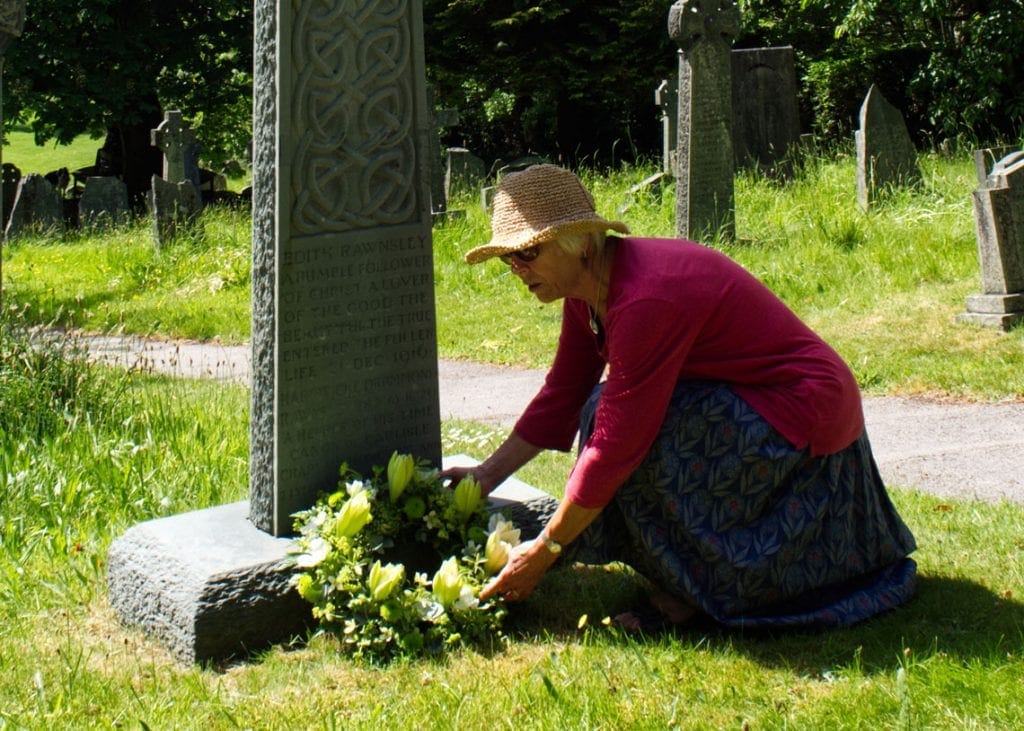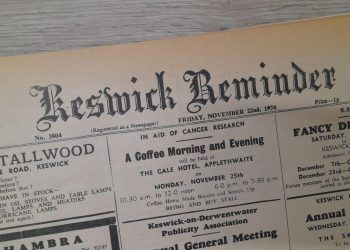A simple graveside ceremony was led by the Revd Andy Murphie at Crosthwaite Church to mark the centenary of the death of Canon Hardwicke Drummond Rawnsley, who was best remembered across the country as one of the founders of the National Trust.
Rawnsley was vicar of Crosthwaite Church from 1883–1917, a was Canon of Carlisle Cathedral (1891–1920) Chaplain to King George V for eight years from 1912. He was a campaigner, fundraiser, writer, and poet, and an easy confidant for his parishioners. He became known locally and nationally for his energetic efforts to improve life for working people.

He and his wife Edith founded the Keswick School of Industrial Art in 1884, designed to alleviate unemployment, which prospered and within ten years more than a hundred men were attending classes. The school closed in 1984 and the building has since become a series of restaurants.
He led campaigns to make access to the countryside available for everyone. Concluding that protests and legislation were not enough to protect the environment, he joined Robert Hunter and Octavia Hill in 1893 to found the National Trust to own land on the public’s behalf. It has grown to become one of Britain’s largest and most important landowners, holding land and buildings in trust for the people of Britain.
Instead of a planned week-long celebration of Rawnsley’s contribution to the life of Crosthwaite Church and of Keswick, to mark the centenary of his death on 28th May 1920, a wreath was laid at his graveside in the churchyard on behalf of the family by churchwarden Harriet Spence, and the great-niece of Canon Rawnsley’s second wife, Eleanor. A prayer of thanksgiving for Rawnsley’s life was followed by the reading of Psalm 121 – the family Psalm. The ceremony ended with the reading of one of Canon Rawnsley’s later poems called “A Morning Prayer”.








